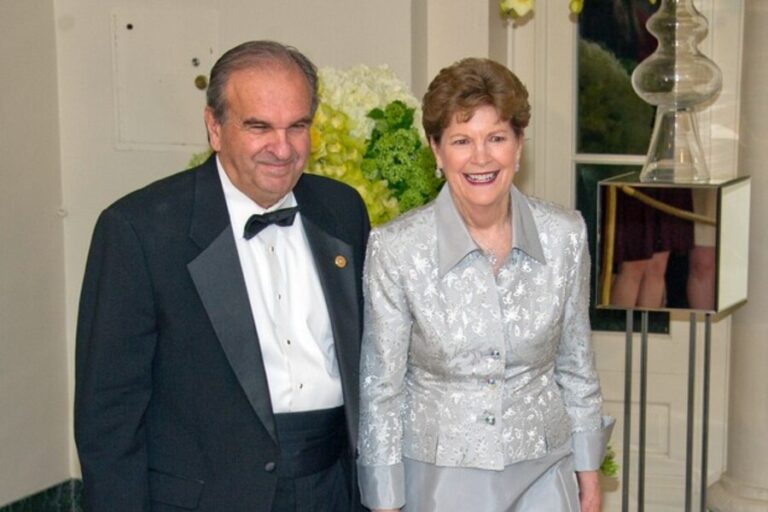In a rare glimpse into the opaque world of government watchlists, CBS News has learned that the husband of U.S. Senator Jeanne Shaheen was quietly removed from a federal travel watchlist in late 2023, after the senator personally intervened with the Transportation Security Administration (TSA). The incident has sparked questions about fairness and potential political influence in the TSA’s “Quiet Skies” surveillance program.
Heightened Security Concerns and a Troubling Experience
William Shaheen, a prominent Lebanese-American attorney active in the Arab-American community, found himself subjected to enhanced airport screening after being flagged by the TSA’s Quiet Skies program. The program, established in 2010, uses a mix of behavioral analysis, travel patterns, facial recognition software, and covert air marshals to monitor travelers, even those not suspected of crimes, as part of domestic counterterrorism efforts.
In July 2023, William Shaheen was pulled aside for extra screening at Boston’s Logan Airport before two flights. Officials initially claimed it was a random selection. However, in October, Shaheen was flagged again—this time because his travel companion had been identified by the FBI as a “known or suspected terrorist” (KST). That broad classification can encompass a wide range of risk factors, from suspicious travel patterns to connections with known suspects.
Sources told CBS News that, as a result, a federal air marshal was assigned to covertly monitor Shaheen and his companion during a flight on October 18.
A Senator’s Call and a Swift Resolution
Two days later, on October 20, Sen. Jeanne Shaheen, a New Hampshire Democrat and ranking member of the Senate Foreign Relations Committee, contacted TSA Administrator David Pekoske to inquire about her husband’s situation. Pekoske, who has served under both the Trump and Biden administrations, subsequently ordered William Shaheen removed from the Quiet Skies list. He was instead added to the “secure flight exclusion list”—a little-known status that exempts travelers from advanced screening and additional scrutiny, including random checks at TSA checkpoints.
A TSA headquarters directive ensured that Shaheen’s secure status would be recognized at all airports during boarding.
Controversy and Lack of Transparency
Critics argue that Quiet Skies has operated largely in secrecy, often ensnaring U.S. citizens who have no criminal history, and providing few avenues for recourse. Some Americans have resorted to lengthy legal battles to challenge their inclusion on the list.
The circumstances that determine who gets flagged—or removed—are not publicly disclosed, raising concerns about due process and political influence. Republican Tulsi Gabbard, now Director of National Intelligence, publicly criticized the program after being placed on the list in 2024 and subjected to monitoring.
Sen. Shaheen’s office told CBS News that she was unaware of the Quiet Skies program’s role in her husband’s initial screening, or that he had been moved to a status that shields him from future screenings. A spokesperson said she had simply sought to understand the reasons for his “extensive, invasive and degrading searches.”
The identity of William Shaheen’s travel companion remains unclear. The senator’s office said only that the individual was an Arab-American attorney. CBS News could not confirm why the person was on the FBI’s terrorism watchlist, though sources indicated that the person was removed from the list later in 2023.
Political Context and Broader Implications
Sen. Shaheen, a frequent critic of former President Trump, has announced she will not seek reelection in 2026. Her eldest daughter, Stefany Shaheen, is running for a seat in the U.S. House. Meanwhile, critics, including Trump, have often warned of the weaponization of state power, especially concerning political opponents—a dynamic that looms large in the public’s perception of government watchlists and security measures.
A Department of Homeland Security official confirmed to CBS News that William Shaheen was recently removed from the secure flight exclusion list, restoring him to standard traveler status subject to routine TSA procedures.
What’s Next?
The incident has reignited debate about the balance between national security and civil liberties, as well as the potential for political influence in sensitive government programs. It also highlights the urgent need for transparency and accountability in systems that can dramatically affect the lives of American travelers, often without their knowledge.
Key Questions for Readers
- Why was William Shaheen flagged in the first place, and was it justified?
- How does the Quiet Skies program decide who to monitor and who gets removed?
- What protections exist to prevent political influence from affecting security decisions?
These are questions that remain unanswered—and that lawmakers and the public alike may soon demand more clarity on.
